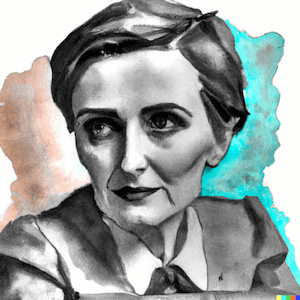Atlas Shrugged by Ayn Rand: Understanding the Genius of the Novel in 2023
Delve into the genius of Ayn Rand’s novel, Atlas Shrugged. From the book’s themes of individualism and capitalism to its philosophical ideas of objectivism, we explore the novel’s complexities and discuss its impact on literature and philosophy. Whether you’re a fan of the book or looking to gain a deeper understanding, our guide provides valuable insights and analysis. Read on to discover the brilliance of Atlas Shrugged
Atlas Shrugged by Ayn Rand is a novel that has captured the attention of readers for decades. The novel is a work of fiction that explores the themes of individualism, capitalism, and objectivism. It is a masterpiece that has become a cornerstone of modern literature and philosophy. In this article, we will explore the genius of the novel and why it has stood the test of time.
Understanding the Plot of Atlas Shrugged
The novel tells the story of a dystopian society where the government has taken control of everything, and individual freedom is all but lost. The story revolves around a group of people led by a woman named Dagny Taggart, who is fighting against the government’s control and trying to keep her family’s railroad company alive.
As the story unfolds, we see the characters struggling with their desire for individual freedom and their sense of responsibility to society. The characters’ choices and actions shape the course of the story, leading to a dramatic conclusion that leaves readers questioning their own beliefs about individualism, capitalism, and morality.
The Themes of Atlas Shrugged
One of the primary themes of Atlas Shrugged is individualism. The novel presents the idea that individuals should be free to pursue their own goals and dreams without interference from the government or society. This theme is reflected in the actions of the characters, who are determined to maintain their individual freedom and protect their rights.
Another important theme of the novel is capitalism. The story presents a positive view of capitalism, emphasizing the importance of free markets and individual initiative. This theme is particularly relevant today, as debates about the role of government in the economy continue to dominate political discourse.
Finally, the novel explores the theme of objectivism. Ayn Rand creation of the philosophy of Objectivism, which focuses on reason, individualism, and self-interest The novel presents a compelling case for the importance of these values and how they can lead to a more just and prosperous society.
The Impact of Atlas Shrugged
Atlas Shrugged has had a profound impact on modern literature and philosophy. The book has been translated into many languages, and millions of copies have been sold all over the world. It has inspired countless readers to explore the ideas of individualism, capitalism, and objectivism.
The novel has also been influential in political circles. Conservatives and libertarians have praised it for its defense of individual freedom and capitalism. However, some people have also criticized it for holding extreme views and for the way it presents its political and philosophical ideas.
Conclusion
Atlas Shrugged, by Ayn Rand, is a novel that has stood the test of time. It is a work of fiction that explores important themes such as individualism, capitalism, and objectivism. The book had a big effect on modern literature and philosophy, and it made a lot of people want to learn more about these ideas.
If you are looking for a thought-provoking novel that will challenge your beliefs about individualism, capitalism, and morality, then Atlas Shrugged is a must-read. It is a masterpiece of modern literature that will leave you thinking long after you turn the last page.
Consider the following questions when reading or reviewing 1984:
We hope the following questions will be a great way to spark discussion and gain a deeper understanding of the themes and ideas presented in the book.
- What is your interpretation of the book’s central message?
- How do the characters in the book reflect the themes of individualism, capitalism, and objectivism?
- What is your opinion of the book’s political and philosophical ideas?
- Did you find any aspects of the book challenging or difficult to understand?
- How does the book compare to other works of literature or philosophy that you have read?
- What is your overall opinion of the book, and would you recommend it to others?

